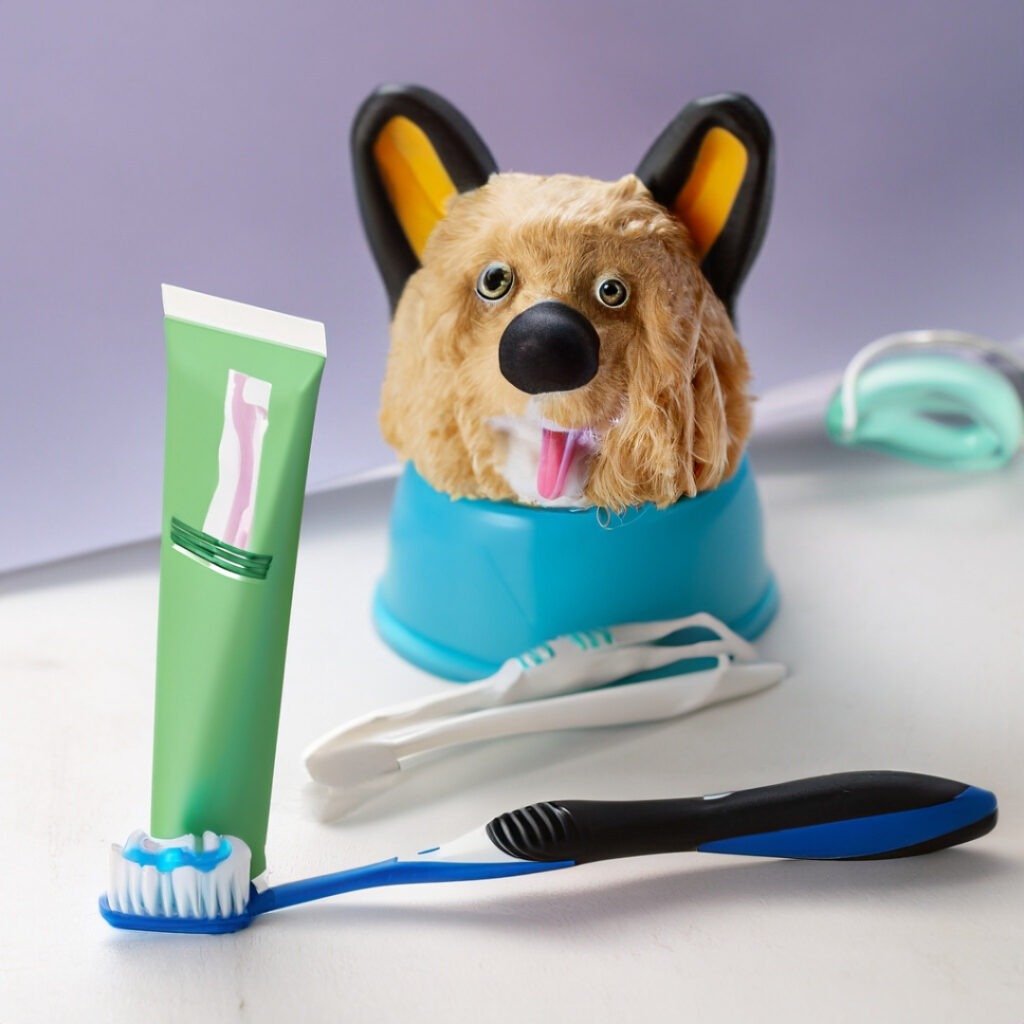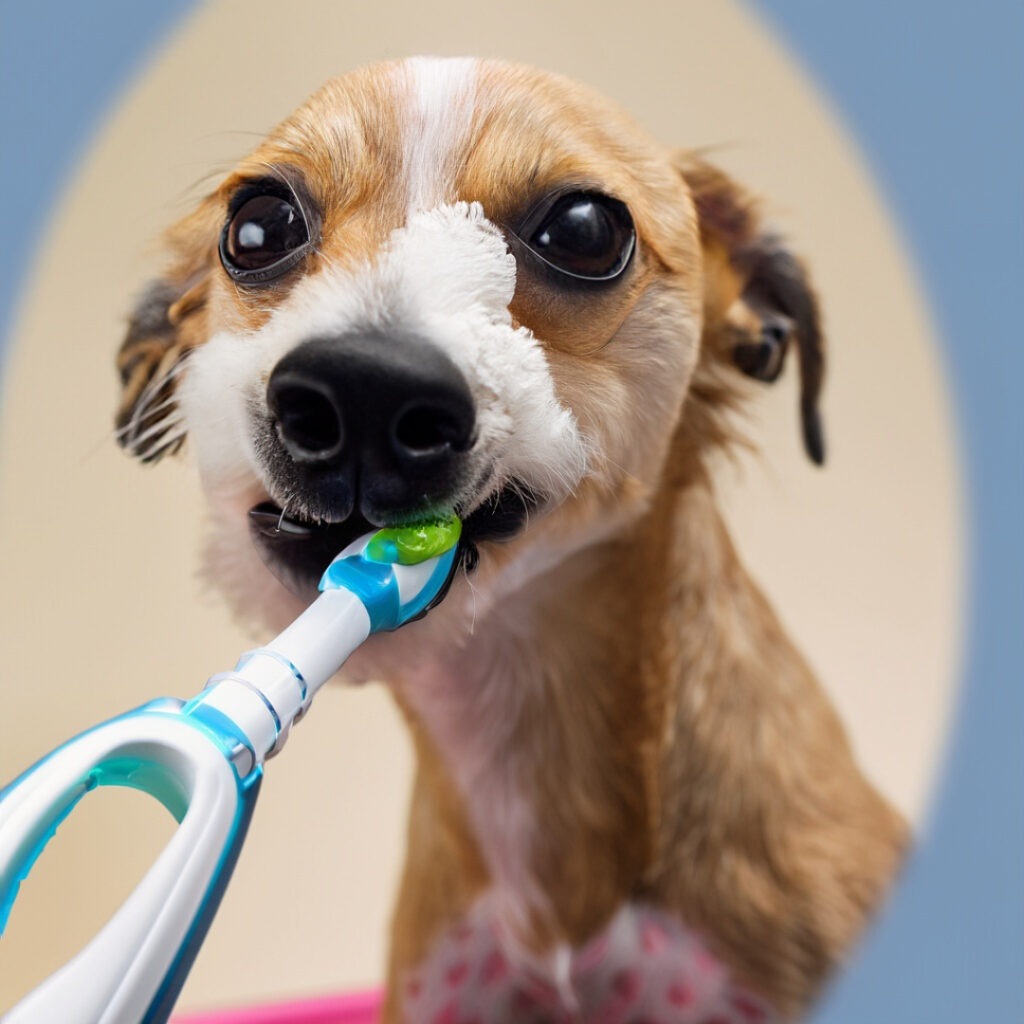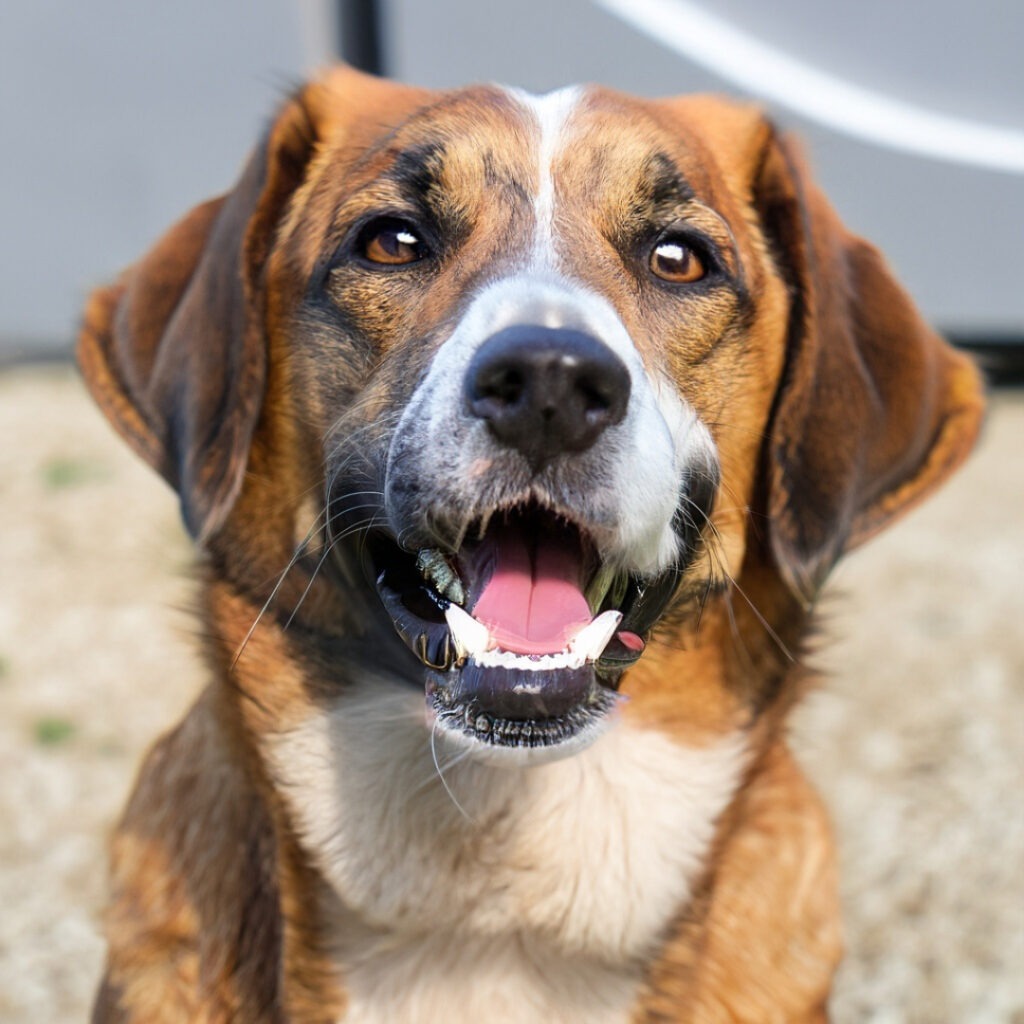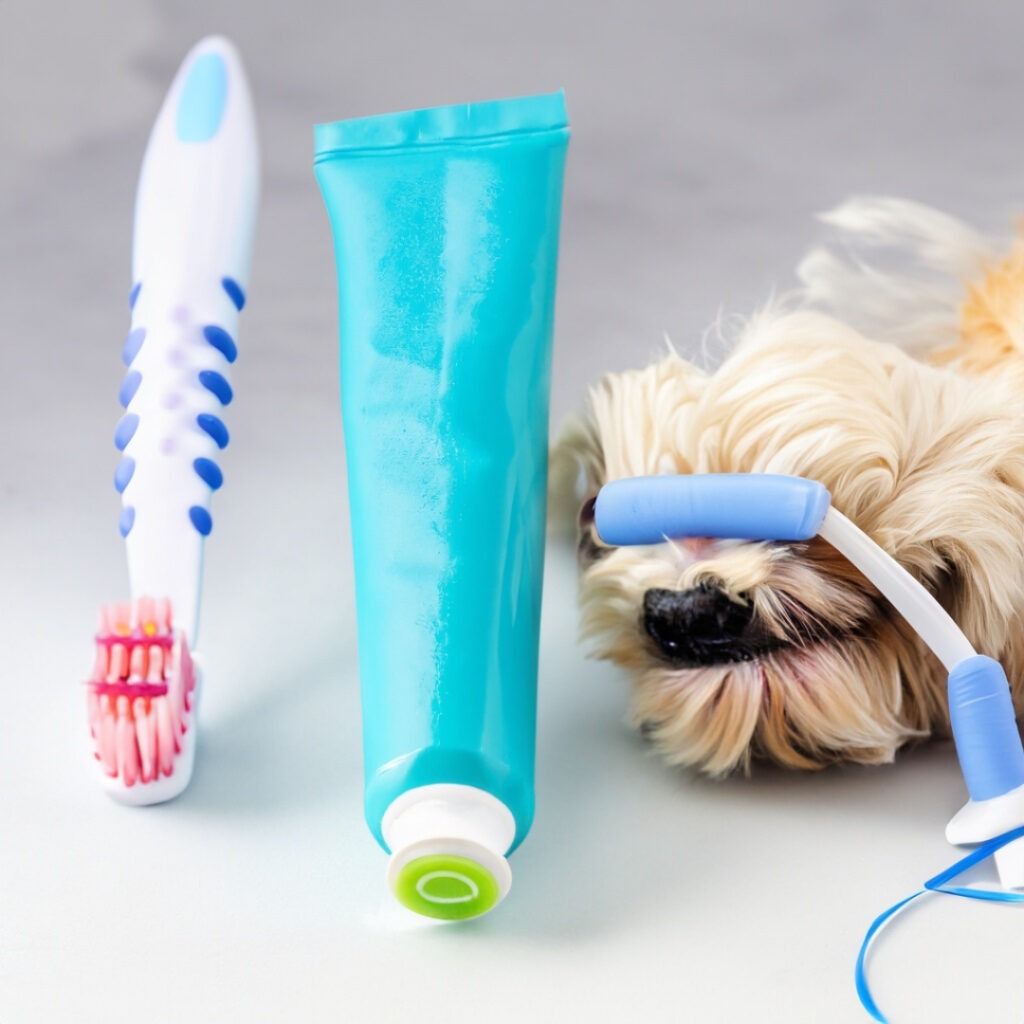In this article, we are covering the best toothpaste for dogs and some dental problems and their solutions.
In a manner akin to humans, (dogs )canines can experience dental ailments such as the accumulation of plaque, tartar, and various gum conditions.

Employing regular toothbrushing using appropriate toothpaste can aid in averting these concerns and ensuring the dental and gingival well-being of your beloved furry companion.
Within the confines of this composition, we shall expound upon the optimal toothpaste alternatives presently accessible for canines within the market.
Why Does Your Dog Need Toothpaste?
You might be wondering, "Why should I use toothpaste for my dog when regular brushing with water seems sufficient?" Well, using toothpaste specifically designed for dogs offers several benefits:
- Plaque and Tartar Prevention: Toothpaste formulated for dogs contains enzymes that effectively break down plaque and prevent tartar buildup. Regular brushing with dog toothpaste helps maintain clean teeth and gums.
- Fresh Breath: Just like humans, dogs can suffer from bad breath due to dental issues. Using dog toothpaste with freshening properties helps eliminate foul odors and keeps your pup's breath smelling pleasant.
- Oral Health Maintenance: Dogs are prone to dental diseases such as gingivitis and periodontal disease. Using toothpaste specially designed for dogs helps promote healthy gums and prevents potential oral health problems.
- Safe Ingestion: Unlike human toothpaste, which contains fluoride and other ingredients that can be harmful if swallowed, dog toothpaste is safe to ingest. Dogs tend to swallow toothpaste during brushing, so using a pet-friendly product is crucial.
Best Toothpaste For Dogs Vet Recommended

With numerous options available on the market, selecting the best toothpaste for dogs can be overwhelming. Here are some factors to consider when choosing the best toothpaste for dogs with bad breath :
1. Natural Ingredients
Opt for toothpaste that contains natural ingredients. Artificial additives, flavors, and chemicals can harm your dog's health. Look for toothpaste that uses natural enzymatic formulas to ensure safe and effective cleaning.
2. Flavor Preferences
Dogs have their own preferences when it comes to flavors. Some may enjoy poultry or beef flavors, while others prefer minty freshness. Experiment with different flavors to find the one that your dog finds most enticing, as this will make brushing a more enjoyable experience for both of you.
3. Size and Texture
Consider the size of your dog and the texture of the toothpaste. Small dogs may require a smaller toothbrush head and toothpaste with a softer consistency. Larger dogs may need toothpaste with a firmer texture to effectively clean their teeth.
4. Veterinary Recommendations
Consult with your veterinarian for recommendations on the best toothpaste for your dog. They will consider your dog's specific dental needs and guide you toward a suitable product.
The Benefits of Regular Brushing
Regular brushing with the best toothpaste for dogs offers numerous advantages that go beyond oral hygiene. Let's explore some of the benefits:

- Prevention of Dental Diseases: Regular brushing helps prevent dental issues such as gum disease, tooth decay, and infections. By keeping your dog's teeth clean, you can significantly reduce the risk of costly dental procedures and potential health complications.
- Improved Overall Health: Poor dental hygiene can lead to bacteria entering the bloodstream and affecting vital organs such as the heart, liver, and kidneys. By maintaining proper oral care through regular brushing, you can contribute to your dog's overall health and well-being.
- Bonding Experience: Brushing your dog's teeth provides an opportunity for bonding and strengthening your relationship. It allows you to spend quality time with your furry friend while ensuring their dental health.
- Early Detection of Dental Issues: Regular brushing allows you to spot any changes or abnormalities in your dog's teeth and gums. By detecting issues early on, you can seek veterinary assistance promptly, preventing further complications.
Best Dog Food After Dental Surgery: Nourishing Your Dog's Recovery
Importance of Proper Nutrition After Dental Surgery
Proper nutrition plays a crucial role in your dog's recovery after dental surgery.
The right diet can aid in the healing process, promote oral health, and provide the necessary nutrients for overall well-being.
It is important to choose a dog food that is gentle on your dog's mouth while providing the essential nutrients they need to regain strength and also take care while choosing toothpastes consider using best toothpaste for dogs
Key Features to Look for in Dog Food After Dental Surgery
When selecting dog food after dental surgery, consider the following key features:
1. Soft and Moist Texture
Opt for dog food with a soft and moist texture to make it easier for your dog to chew and swallow. This reduces discomfort and minimizes the risk of irritation to the surgical site.
2. High-Quality Protein
Choose dog food that contains high-quality protein sources such as lean meats or fish. Protein is essential for tissue repair and supports the body's healing processes.
3. Balanced Nutrients
Ensure the dog food provides a well-balanced combination of essential nutrients, including vitamins, minerals, and carbohydrates. This helps support the immune system, aids in healing and promotes overall health.
4. Dental-Friendly Ingredients
Look for dog food that contains dental-friendly ingredients such as antioxidants and omega-3 fatty acids. These ingredients can help reduce inflammation, support gum health, and promote oral hygiene.
FAQs About the Best Toothpaste for Dogs
Q1: How often should I brush my dog's teeth?
A1: Ideally, you should aim to brush your dog's teeth at least two to three times a week. However, daily brushing is the most effective way to maintain dental health.
Q2: Can I use human toothpaste for my dog?
A2: No, it is not recommended to use human toothpaste for dogs. Human toothpaste often contains fluoride and other ingredients that can be toxic when ingested by dogs. It's important to use toothpaste specifically formulated for dogs.
Q3: My dog doesn't like having their teeth brushed. What should I do?
A3: If your dog resists brushing, try using toothpaste with a flavor they enjoy. You can also start by gently massaging their gums with your finger and gradually introduce the toothbrush. Patience and positive reinforcement can go a long way in making the experience more pleasant for your dog.
Q4: Are there alternative dental hygiene options for dogs?
A4: Yes, there are alternative options such as dental chews, dental wipes, and water additives that can help maintain your dog's oral hygiene. However, these should not replace regular brushing with toothpaste, as they are not as effective in removing plaque and tartar.
Q5: Can I make homemade toothpaste for my dog?
A5: While there are homemade toothpaste recipes available, it is generally recommended to use commercially available dog toothpaste. Homemade toothpaste may not have the necessary enzymatic action to effectively clean your dog's teeth.
Q6: How long will it take to see results from regular brushing?
A6: The results may vary depending on your dog's dental condition. With regular brushing using the best toothpaste for dogs, you should start to see improvements in their oral hygiene within a few weeks. However, for more severe cases, it may take longer to see noticeable changes.
Conclusion
Maintaining your dog's dental health is essential for its overall well-being. Regular brushing with the best toothpaste for dogs not only ensures fresh breath and a bright smile but also prevents dental diseases and potential health complications.

By choosing the best toothpaste for dogs and implementing a consistent oral hygiene routine, you can keep your furry friend's teeth and gums healthy. So, make brushing a part of your dog's daily routine and enjoy the benefits of a happy and healthy smile.
